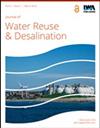慢性锌暴露后氧化应激、神经毒性和肠道微生物调节:成年斑马鱼(Danio rerio)的实验研究
IF 2.3
Q2 Environmental Science
引用次数: 3
摘要
锌是纺织废水中存在的高浓度重金属之一。然而,锌对水生脊椎动物的慢性毒性作用仍不明确。本研究探讨了慢性锌暴露后斑马鱼体内锌的积累及其对肠道、肌肉和鳃的毒性作用。结果表明,锌暴露25 d后,肠道、肌肉和鳃中出现了显著的锌积累。锌对斑马鱼的毒性作用主要表现在锌诱导的氧化应激、潜在的神经毒性和肠道微生物的改变。超氧化物歧化酶、过氧化氢酶、金属硫蛋白、谷胱甘肽和丙二醛水平的显著变化表明锌破坏了成年斑马鱼的抗氧化系统。锌暴露导致乙酰胆碱酯酶活性显著降低和神经信号异常。此外,锌暴露导致成年斑马鱼肠道微生物丰富度增加,辛普森指数降低。在门和属水平上,肠道中的优势微生物被锌改变。综上所述,本研究分析了慢性锌暴露对成年斑马鱼的毒性作用及其潜在机制,对评估锌对水生生物的双重效应具有重要意义。本文章由计算机程序翻译,如有差异,请以英文原文为准。
Oxidative stress, neurotoxicity, and intestinal microbial regulation after a chronic zinc exposure: an experimental study on adult zebrafish (Danio rerio)
Zinc is one of the heavy metals present in textile wastewater with high concentrations. However, the chronic toxic effects of zinc on aquatic vertebrates are still ambiguous. Zinc accumulation in zebrafish after chronic zinc exposure and toxic effects on the intestines, muscles, and gills were investigated in this study. The results showed that a significant accumulation of zinc in the intestine, muscle, and gill was observed after 25 d of zinc exposure. The toxic effects of zinc were mainly in the form of zinc-induced oxidative stress in zebrafish, potential neurotoxicity, and changes in intestinal microbes. Significant changes in the levels of superoxide dismutase, catalase, metallothionein, glutathione, and malondialdehyde indicated that zinc damaged the antioxidant system of adult zebrafish. Zinc exposure resulted in a significant decrease in acetylcholinesterase activity and abnormal neural signaling. Furthermore, zinc exposure resulted in increased intestinal microbial richness and decreased the Simpson index in adult zebrafish. At the phylum and genus levels, the predominant microbes in the intestine are altered by zinc. In summary, this study provides an analysis of the toxic effects of chronic zinc exposure on adult zebrafish and the potential mechanisms, which are important for assessing the dual effects of zinc on aquatic organisms.
求助全文
通过发布文献求助,成功后即可免费获取论文全文。
去求助
来源期刊

Journal of Water Reuse and Desalination
ENGINEERING, ENVIRONMENTAL-WATER RESOURCES
CiteScore
4.30
自引率
0.00%
发文量
23
审稿时长
16 weeks
期刊介绍:
Journal of Water Reuse and Desalination publishes refereed review articles, theoretical and experimental research papers, new findings and issues of unplanned and planned reuse. The journal welcomes contributions from developing and developed countries.
 求助内容:
求助内容: 应助结果提醒方式:
应助结果提醒方式:


